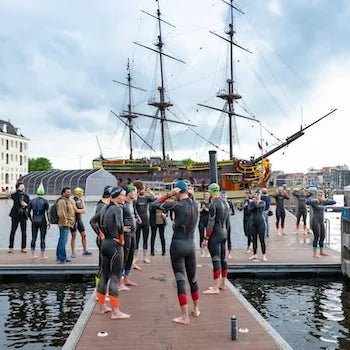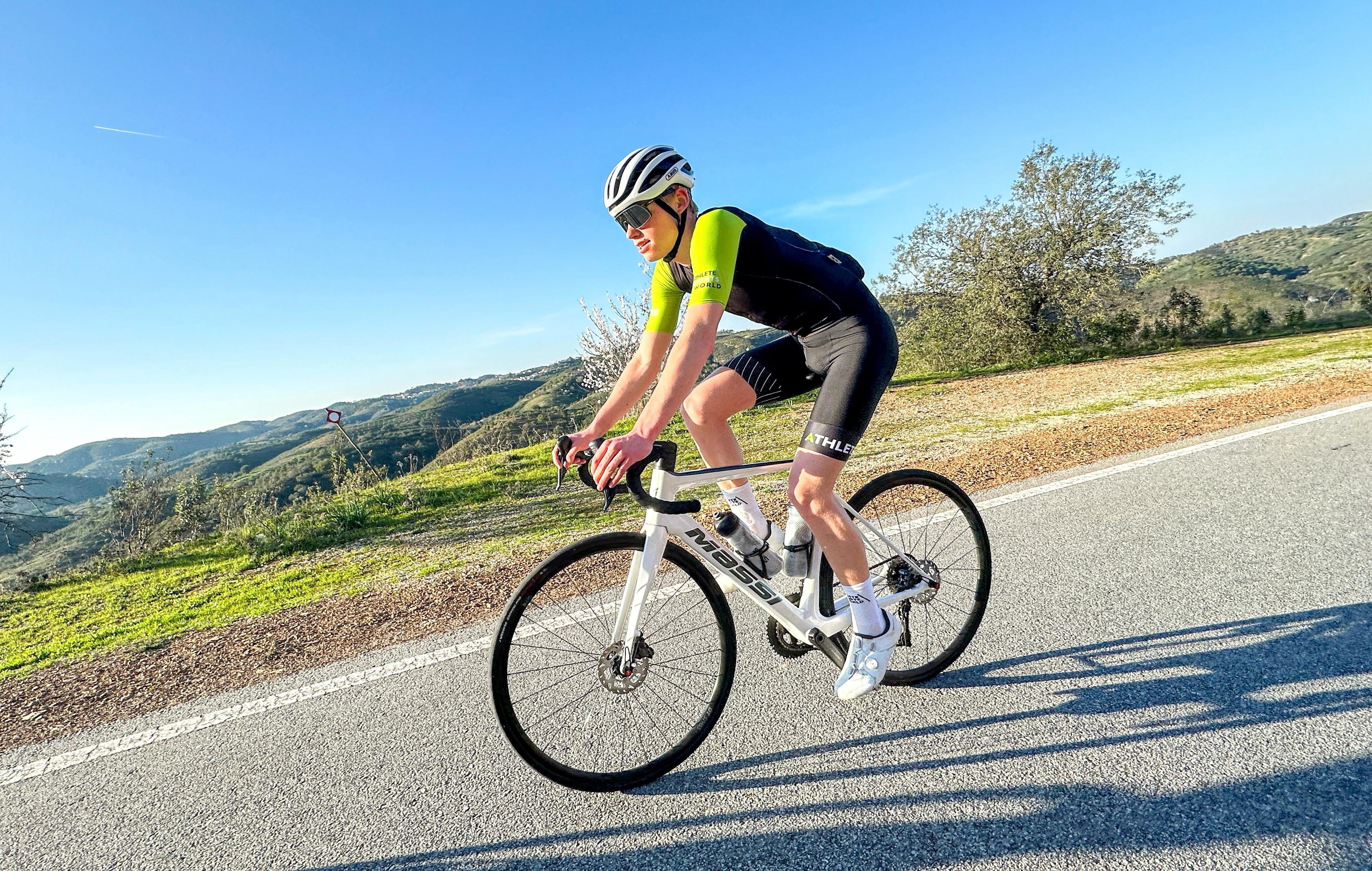The distances and sports nutrition:Note ... The tips and advice below must first be tried out during a training before you apply this in a competition!
The Olympic distance (OD) triathlon
- 1500m swimming,
- 40 km cycling,
- 10 km running.
Compared to the sprint triathlon, you can get more in a "zone" with an OD triathlon. Your heart rate will be a lot less high than with the sprint. After all, you must be able to keep it up for longer. The toppers take it around 1: 45 to 2 hours, while the normal mortal takes a little longer.
We try to distribute the stock of carbohydrates as well as possible over the distance at which we still try to keep the EA for a final sprint when running. You will have to practice a good distribution in intensity over the distances ... How does my body react to this intensity and can I still cycle/run afterwards.
With this distance you can already supplement your carbohydrate stocks better and easier. The preparation is basically the same as the sprint triathlon, but the biggest change is in the bicycle part. In this part you can eat and drink much more. After all, you have longer time and the intensity is lower than with a sprint.
Tip: it is advisable to take a 750ml bottle with you on the bike supplemented with approximately 2 to 3 (isotone) gels.You can, for example, attach the gels on your top tube of the bike with paint tape so that you can easily loosen it while cycling.
While running it is advisable to use the drinking station of the organization and to alternate water and sports drink here. First ask the organization what they offer because this really differs from competition to competition. If you do not trust it, you can always bring sports drinks yourself. Science in Sports has made a handy 400ml bottle for this that easily fits in your hand.
The same applies to the recovery as to the sprint triathlon. Try within 30 minuten After the effort, to take a recovery drink to supplement your glycogen stock. Such a recovery drink is a combination of proteins (building material for the muscles), electrolytes and carbohydrates. These elements are the basis for a good recovery. As soon as it is somewhat possible, you can switch to normal food again (not too fat and preferably no alcohol).
Try to drink 1 to 2 water bottles with electrolytes in the hours after the game and preferably also the next day. Taking up your moisture management will promote your recovery in the hours that follow this is certainly recommended in warm weather.




